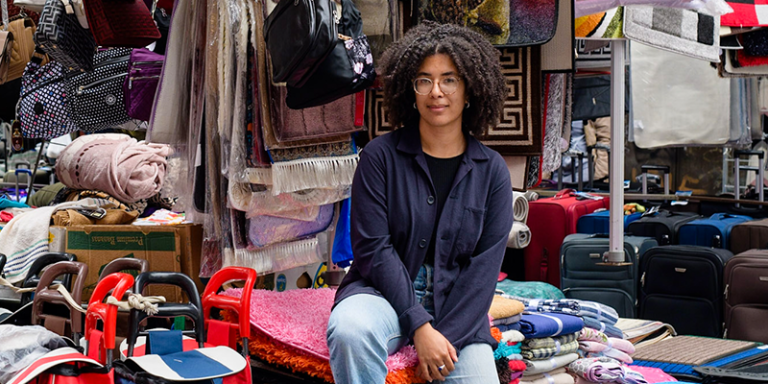Tackling inequality in the everyday
6 August 2023
When UCL and the Joseph Rowntree Foundation first discussed the idea of collaborating on a major new joint project to work out how we might tackle the most profound inequalities of our time, the challenge seemed both exciting and daunting.

This article originally appeared in the UCL Policy Lab Magazine.
Now six months on, and just three months from the launch of the Ordinary Hope project, the project is expanding and reaching out to organisations, institutions, and communities right across the country.
Yasmin Ibison, Senior Policy Advisor, and project lead from Joseph Rowntree Foundation, has been joined by the latest member of the UCL Policy Lab team, Alisha Iyer. Along with developing Ordinary Hope, Alisha will be driving the work to help foster a broader collaborative ecosystem for change.
Having previously worked in a community and place-based organisation that seeks to dismantle the systemic barriers preventing Black communities from thriving - Yasmin is aware of the competing demands placed on individuals and social change organisations: “Oftentimes grassroots organisations and community groups don’t have the kind of direct line into power or funding those longstanding institutions have,” she says.
So often driven by a desire for a better future for their communities and a love for place, these organisations are not always able to work with, and influence, national and political institutions. But their work is groundbreaking and critical to so many people’s everyday lives across the UK.
The Ordinary Hope project seeks to support and understand how those working in differing sectors can work together through their differences and bridge the fragmented nature ofM change.
This includes recognising the dynamism that comes from bringing political institutions into contact with community based movements for change.
For Yasmin, this is also about inviting people in and creating space for different types of organisations to play their part in shaping the discussion: “What I find so exciting about the project is the prospect for genuine collaboration and understanding across different organisations and backgrounds,” she says. “Having worked for small and big organisations, we often talk about collaboration but don’t always properly practice it.”
This belief that change -- be it reform to public service, poverty or meeting our net zero targets -- will only happen if we can find new ways to collaborate and feels more relevant than ever.
As we move towards the general election, people increasingly want to see change and reform, but this will not be delivered in Westminster or Whitehall alone and nor should it be. However, the many networks and organisations already doing great work are hampered by systems that stifle collaboration.
Ensuring this network for change is fighting fit is critical to how the UK can overcome its challenges. And as Yasmin points out it is something that isn’t always easy or prioritised: “I think so often we focus on a single policy or idea that can solve an issue,” she says-
“In many ways, JRF and UCL are all about trying to find solutions. But just as important a role is trying to work out the tools we need to build something better.”
In that sense, Ordinary Hope is tapping into a challenge which has become clear for the UK. The country is awash with smart ideas, many of which the project aims to highlight and connect to everyday lives, but these ideas lack the tools to make them happen.
This work is tough but exciting. It allows us to work together and across differences to bring about lasting change. And the Ordinary Hope project is inviting others to get involved: “Everyone I speak to,
I talk about the project – it really is an open invitation to get involved,” said Yasmin.
“It’s about bringing together our talents, ideas and views.
And recognising where we agree we should be making progress. I guess it’s all about breaking down the barrier”
 Close
Close

